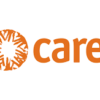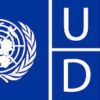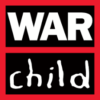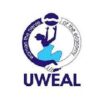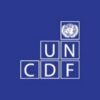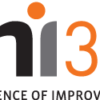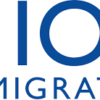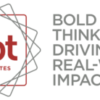Overview:
USAID/Uganda
Although priorities have evolved over the past five decades, USAID’s commitment to Uganda continues to focus on improving livelihoods. Strong economic growth has lowered poverty, reduced the rate of HIV/AIDS infections, and improved access to education, but challenges remain, such as a high drop-out rate and low quality of education. A large number of children remain vulnerable to abuse, exploitation and violence; and the country’s youth face high unemployment rates when they finish school. USAID’s work in Uganda supports U.S. policy objectives in peace and security, democracy and governance, health and education, economic growth, and humanitarian assistance.
EDUCATION
USAID partners with the Ministry of Education and Sports (MoES) to improve the quality of basic education in primary grades in Uganda. Our work focuses on improving reading and math outcomes in primary school. USAID strengthens the teaching workforce by improving professional training, providing teaching and learning materials like books, and delivering ongoing mentoring and coaching to trained teachers.
YOUTH AND CHILD DEVELOPMENT
Of Uganda’s 17 million children under the age of 18, more than half are in vulnerable situations that require external support. An estimated 11 percent of all Ugandan children are orphans. Such conditions negatively affect the health, skills development and nutrition of these children, jeopardizing their chances for a prosperous future. USAID delivers multiple programs to prevent violence against children and youth in homes, schools, and communities and to improve medical and law enforcement response to identified cases of violence.
USAID partners with the Ministry of Gender, Labor and Social Development to ensure orphans and other vulnerable children receive support services that reduce their vulnerability during times of need. USAID’s programming employs an integrated approach to address the complex challenges they face. This includes empowering children, youth, and their caregivers to access core services like education and health care; strengthening systems to provide these core services delivery systems; and improving coordination of community-based services for efficiency and effectiveness along a range of care needed by each vulnerable child. Comprehensive case management and service provision is building resilience of the children and their families, enabling them to lead healthier, more educated, and stable lives.
On behalf of the Education, Youth, and Child Development (EYCD) Office, IBTCI seeks an Education, Youth, and Child Development Advisor to provide support to the office for six to nine months. EYCD provides developmentally appropriate support to children, youth, and their families across the lifespan through a cross-sectoral portfolio of Basic Education ($7-9M/year), Higher Education ($0-1M/year), and PEPFAR/Orphans and Vulnerable Children (OVC, $18M/year) funding.
The EYCD Advisor helps guide and provide technical oversight for the office’s technically complex work and is directly supervised by the EYCD Office Director (OD). Due to the multifaceted nature of EYCD’s work, the Advisor position is ideally suited for an person with a background/interest in holistic human development, including education, youth issues, health, child rights/protection, government systems strengthening, and/or mental health and psychosocial support; persons with backgrounds in any or all of these areas and encouraged to apply.
The Advisor contributes to the practical functioning of EYCD and will create materials and other pathways to advocate for and explain all aspects of the portfolio to high-level decision-makers in-country and in Washington. The office is composed of four teams – Basic Education, Higher Education and Youth, Orphans and Vulnerable Children and Child Protection, and Program Support – with a total of 13 staff (2 USDH, 1 TCN PSC, and 10 FSNs). The four teams jointly contribute to a cross-office integrated work plan and are expected to collaborate closely with other USAID offices; the interagency (CDC, DOD, Peace Corps, State); other donors; and the Government of Uganda.
The Advisor will work closely with EYCD staff to achieve office goals. EYCD prioritizes FSN empowerment, staff well-being, and a supportive work environment; the incoming Advisor will be expected to maintain or expand this approach. Travel is expected about 20% of the time, often on rough roads.
Responsibilities
Essential Duties/Tasks and Responsibilities:
• Drafting/finalizing communications materials including but not limited to: briefing checklists and scenarios for site visits; materials promoting EYCD programming; research/evaluation products (reports, policy briefs), speeches; facts sheets.
• Contributing to / guiding processes such as PPR; OP; Quarterly Financial Reviews; Portfolio Reviews.
• Attending and supporting coordination such as: Education Development Partners (Donors) Group; Global Partnership for Education; Education Cannot Wait.
• Support internal Mission coordination such as: communications, partnerships, youth, gender, persons with disabilities, and indigenous peoples groups and others as needed.
• Support the start-up and extension of current activities.
• Support management of current activities as an activity manager as assigned.
• Mentor EYCD staff as appropriate.
• Ad hoc requests that would fall within the normal purview of a Foreign Service Officer.
NOTE: The consultant will not perform other inherently governmental functions or duties (e.g. will not serve as AOR/COR or supervise staff), but rather will advise, mentor, and facilitate as appropriate on the performance of inherently governmental functions on the part of the Office or Mission.
Key Deliverables: (SMART – tangible outcomes)
• Completion of PPR, OP, QFR, and Portfolio review documents.
• Fact sheets for all EYCD (education, youth and child development) programs are updated.
• Develop speeches (5), briefing checklists (8), photos, success stories (10); tweets (50) as requested.
• Site visits completed (10).
• Creation and proofreading of development partner meeting minutes, agendas, and presentations (18).
• Ad hoc requests that fall within the guidelines of providing operational support for the EYCD office (25).
Qualifications
Minimum Requirements:
• Knowledge of international development efforts including specific sectors of interest in health and/or education and/or child development.
• Excellent interpersonal skills; ability to work in a dynamic team environment with a diverse set of partners and stakeholders.
• Excellent writing skills and ability to write in a collaborative process; ability to meet deadlines.
• Outstanding organizational and planning abilities.
• Ability to work collaboratively with other offices within USAID/Washington and USAID Missions in Sub-Saharan Africa, other U.S. government officials, other donors, partner government representatives, and implementing partners.
• Knowledge and skill to help advise other specialists in and outside the Agency, as well as top managers and decision-makers, on issues of developing, communicating, or enhancing USAID development programs.
• Compliance with all Federal or Agency COVID requirements to assess Agency facilities, such as vaccination/public health requirements.
• Must have the ability to obtain and maintain a facilities access clearance.
Preferred
• Knowledge of Africa and international development efforts within sub-Saharan Africa including specific sectors of interest in health and/or education and/or child development.
• Demonstrated experience in strategic planning.
• Experience with a diverse set of partners, such as civil society, foundation, bilateral donors, and other partners (preferred).
• Experience working and collaborating with U.S. government agencies and private sector organizations, including officials with international organizations, foreign and domestic government officials, and development partners.
• Knowledge of best practices regarding dissemination of key findings.
• Knowledge of USG program design and implementation, budgeting, financial management, and performance reporting processes.
Education:
• Bachelor’s degree in related discipline plus seven (7) years of relevant experience, or Master’s degree in related discipline plus five (5) years of relevant experience;
Job application procedure
Interested and qualified, Click here to apply.
All Jobs
More Information
- Address Kampala, Uganda, East Africa


